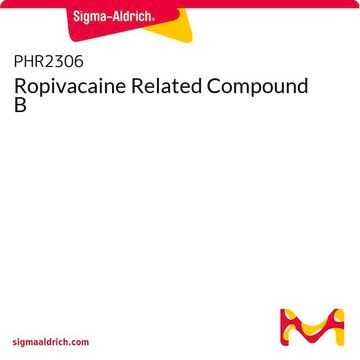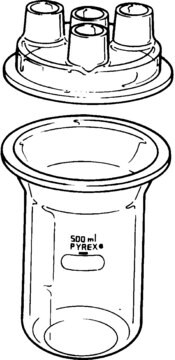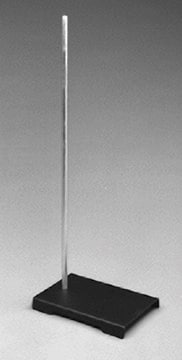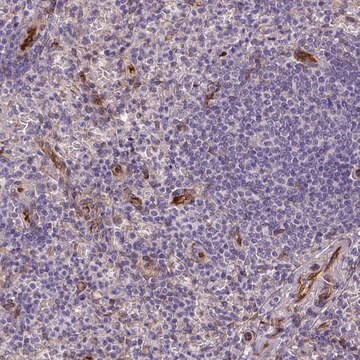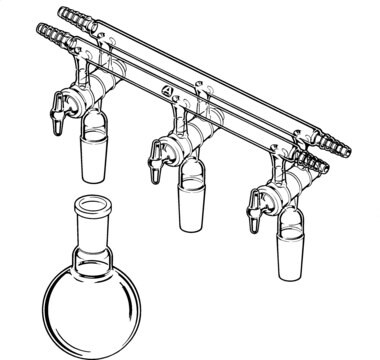General description
We are committed to bringing you greener alternative products, which adhere to one or more of The 12 Principles of Green Chemistry.This antibody is Preservative-free, produced without the harm or sacrifice of animals and exceptionally stable to allow for ambient shipping and storage if needed and thus aligns with "Waste Prevention", "Designing Safer Chemicals" and "Design for Energy Efficiency".
Click here for more information.
ZooMAb® antibodies represent an entirely new generation of recombinant monoclonal antibodies.Each ZooMAb® antibody is manufactured using our proprietary recombinant expression system, purified to homogeneity, and precisely dispensed to produce robust and highly reproducible lot-to-lot consistency. Only top-performing clones are released for use by researchers. Each antibody is validated for high specificity and affinity across multiple applications, including its most commonly used application. ZooMAb® antibodies are reliably available and ready to ship when you need them.
Specificity
Clone 1G22 is a ZooMAb® Rabbit recombinant monoclonal antibody that specifically detects Metastasis-associated protein MTA1. It targets an epitope within 25 amino acids from the C-terminal region.
Immunogen
KLH-conjugated linear peptide corresponding to 25 amino acids from the C-terminal region of human Metastasis-associated protein MTA1.
Application
Quality Control Testing
Evaluated by Western Blotting in Raji cell lysate.
Western Blotting Analysis: A 1:1,000 dilution of this antibody detected MTA1 in Raji cell lysate.
Tested Applications
Western Blotting Analysis: A 1:1,000 dilution from a representative lot detected MTA1 in lysates from HeLa and C2C12 cells and Rat brain tissue.
Affinity Binding Assay: A representative lot of this antibody bound MTA1 peptide with a KD of 1.3 x 10-8 in an affinity binding assay.
Immunohistochemistry (Paraffin) Analysis: A 1:100 dilution from a representative lot detected MTA1 in human testis tissue sections.
Note: Actual optimal working dilutions must be determined by end user as specimens, and experimental conditions may vary with the end user
Target description
Metastasis-associated protein MTA1 (UniProt: Q13330; also known as MTA1) is encoded by the MTA1 gene (Gene ID: 9112) in human. MTA1 is a component of the nucleosome-remodeling and histone-deacetylase multiprotein complex (NuRD). It is widely expressed with high expression observed in brain, liver, kidney, and cardiac muscle, ovaries, adrenal glands, and virgin mammary glands. It serves as a transcriptional coregulator that can act as both a transcriptional corepressor and coactivator. As a part of the NuRD complex, it regulates transcription of its targets by modifying the acetylation status of the target chromatin and cofactor accessibility to the target DNA. In conjunction with other components of NuRD, it acts as a transcriptional corepressor of BRCA1, ESR1, TFF1 and CDKN1A. It also acts as a transcriptional coactivator of BCAS3, PAX5 and SUMO2, independent of the NuRD complex. MTA1 plays an important role in tumorigenesis, tumor invasion, and metastasis. It is up-regulated in a wide variety of cancers including breast, liver, ovarian, and colorectal cancer, and its expression levels are closely correlated with tumor aggressiveness and metastasis. MTA1s is phosphorylated by CKI- 2 and that enhances its ability to sequester ER- in the cytoplasm. A short and a long isoform of MTA1 have been described. The short isoform is cytosolic and contains a Leu-Arg-Ile-Leu-Leu (ER binding) motif. The long isoform is present in the nucleus, nuclear envelope, and in the cytosol. This ZooMAb® recombinant monoclonal antibody, generated by our propriety technology, offers significantly enhanced specificity, affinity, reproducibility, and stability over conventional monoclonals. (Ref.: Gururaj, AE., et al. (2006). Proc. Natl. Acad. Sci. USA.103(17); 6670-6675; Mishra, SK., et al. (2004). Oncogene. 23(25); 4422-4429).
Physical form
Purified recombinant rabbit monoclonal antibody IgG, lyophilized in PBS with 5% Trehalose, normal appearance a coarse or translucent resin. The PBS/trehalose components in the ZooMAb formulation can have the appearance of a semi-solid (bead like gel) after lyophilization. This is a normal phenomenon. Please follow the recommended reconstitution procedure in the data sheet to dissolve the semi-solid, bead-like, gel-appearing material. The resulting antibody solution is completely stable and functional as proven by full functional testing. Contains no biocide or preservatives, such as azide, or any animal by-products. Larger pack sizes provided as multiples of 25 μL.
Reconstitution
30 μg/mL after reconstitution at 25 μL per vial. Please refer to guidance on suggested starting dilutions and/or titers per application and sample type.
Storage and Stability
Recommend storage of lyophilized product at 2-8°C; Before reconstitution, micro-centrifuge vials briefly to spin down material to bottom of the vial; Reconstitute each vial by adding 25 μL of filtered lab grade water or PBS; Reconstituted antibodies can be stored at 2-8°C, or -20°C for long term storage. Avoid repeated freeze-thaws.
Legal Information
ZooMAb is a registered trademark of Merck KGaA, Darmstadt, Germany
Disclaimer
Unless otherwise stated in our catalog or other company documentation accompanying the product(s), our products are intended for research use only and are not to be used for any other purpose, which includes but is not limited to, unauthorized commercial uses, in vitro diagnostic uses, ex vivo or in vivo therapeutic uses or any type of consumption or application to humans or animals.



